designed for the way women work.
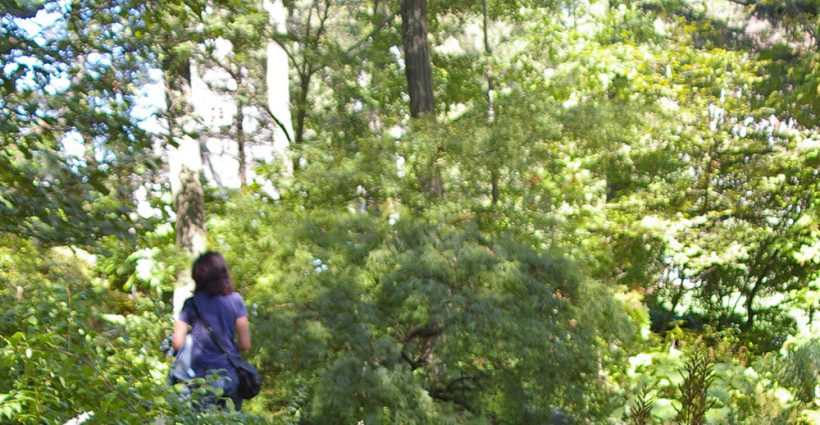
5 Favorite Tall Woodland Plants
Category: Presenting "The Curious Gardener"
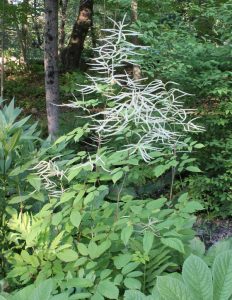
Goatsbeard (Genus: Aruncus) Goatsbeard is a native perennial that resembles a giant astilbe. Grow it in partial or full shade in organically rich, moist conditions. Will grow 6’ tall and produces cream-colored plumes in summer (as shown). It grows in clumps and can be propagated through division. I found useful information on the Fine Gardening website.
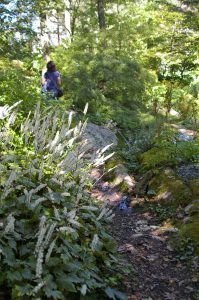
Japanese Bugbane: (Genus: Cimicifuga or Actaea (both are accepted)) Common names include bugbane, bugwort, cohosh, or snakeroot. They are clump forming with serrated leaflets and may not bloom in the first year or two. They like partial or full shade but do not like dry shade. (I read that they want about an inch of water per week during the growing season, but do not like boggy conditions.) Long stems (up to 7’ long) have bottle shaped white blooms in late summer. Hardy in Zones 3-7. I found more information on the about.com website.
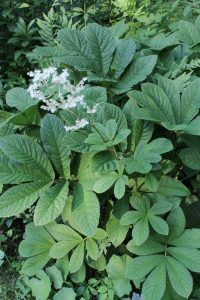
Rodgersia–(Genus: Rodgersia) Native to Southwestern China, this plant likes full sun or part shade, with organically rich moist soil. Thrives in zones 5 to 7. Large showy leaves resemble horse chestnut leaves from a distance, sending up astilbe-like panicles of creamy white to pink blossoms in late Spring or early Summer. The Missouri Botanical Garden website, a great source of plant information, can provide more details about this beautiful plant.
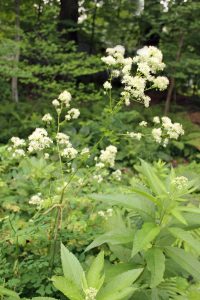
Meadow Rue (Genus: Thalictrum) Native to stream banks and moist meadows across the globe. Delicate flower spikes of creamy white, emerging in early summer, may flop over if not staked. Thrives in full sun or part shade in moist, organically rich soil. Lacy leaves resemble that of aquilegia (columbine). I found useful information on the Fine Gardening website.
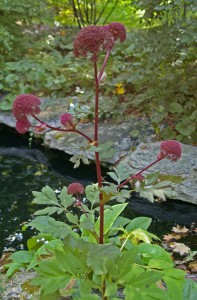
Angelica gigas: (Genus: Angelica) I have not grown this plant, but took this photo at the public garden, Stonecrop Gardens in Cold Spring, NY. Margaret Roach, in her blog A Way To Garden, calls it an ‘oddball’ plant. Here’s what she says, taken directly from her blog, and you can read more here.
“To succeed with Angelica gigas, you need to get it started in a spot that’s at least part shade, and where the soil isn’t too dry. And you need something more: You need two “generations” of genetic material, both a one-year seedling and also a batch of seed.
Since it’s biennial–meaning blooming in its second year, and simply producing foliage its first–you also need to keep a strict eye on the spot where you spread those seeds. They’ll be tiny sprouts at first, if all goes well, easy to overlook and inadvertently rake up during spring cleanup. Mark off the area where you sowed them the previous fall, and let them be.”
All photos taken by Dorian Winslow.




Spot on with this write-up, I really believe this site needs far
more attention. I’ll probably be returning to read through more, thanks for the info!
My webpage marketing tactic